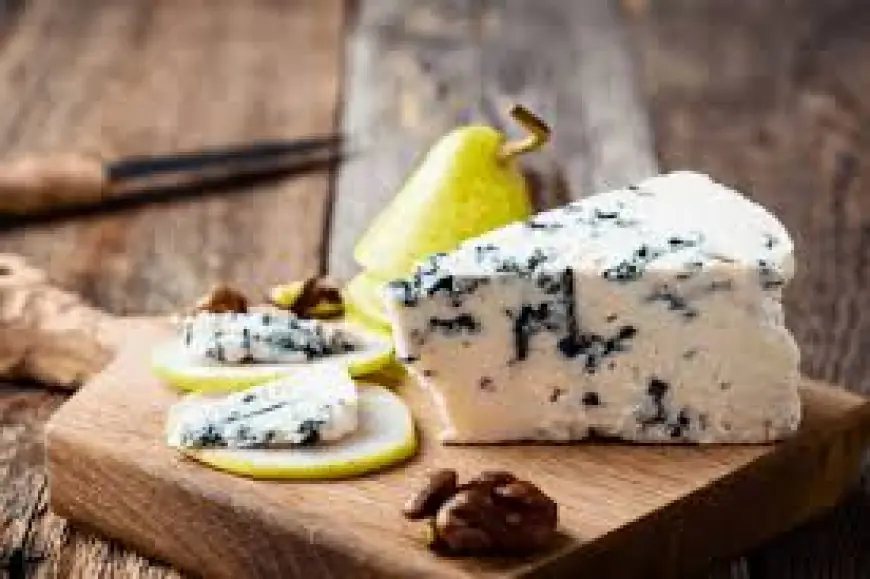Blue Cheese Market developments focusing on sustainability practices, eco-friendly packaging, and green production methods globally
Sustainability practices, eco-friendly packaging, and green production methods are shaping blue cheese market developments, enhancing premium adoption, consumer awareness, and global growth while supporting artisanal and specialty cheese sector expansion worldwide effectively.

Blue Cheese Market developments focusing on sustainability practices, eco-friendly packaging, and green production methods globally highlight the growing importance of environmentally responsible operations in specialty cheese markets. Consumers increasingly value brands that prioritize sustainable sourcing, reduced environmental impact, and ethical production. Producers adopting green initiatives can differentiate their products, enhance premium perception, and foster loyalty. Sustainable practices in production, packaging, and distribution contribute to long-term growth, international expansion, and positive consumer engagement across artisanal and specialty blue cheese segments.
Sustainability Practices
Sustainability practices involve responsible sourcing, energy-efficient production, and waste reduction. Producers are focusing on renewable energy, efficient water usage, and reduced emissions to minimize environmental impact. Sourcing milk and ingredients from farms practicing ethical animal husbandry and regenerative agriculture reinforces credibility. Sustainable practices enhance brand reputation, resonate with eco-conscious consumers, and support premium pricing. Communicating these efforts through packaging, marketing, and digital platforms educates consumers and encourages loyalty. Long-term adoption of sustainability practices ensures operational efficiency, competitive advantage, and responsible growth.
Eco-Friendly Packaging
Eco-friendly packaging is essential for aligning with sustainability trends. Producers are adopting recyclable, biodegradable, or compostable materials to reduce environmental footprint. Packaging designs focus on protecting product quality while minimizing waste and energy usage. Clear labeling highlights eco-friendly attributes, informing consumers about sustainable choices. Innovative packaging enhances shelf appeal, differentiates products, and communicates brand values. Incorporating sustainability into packaging strategies strengthens consumer trust, encourages trial, and supports repeat purchases, promoting global premium adoption.
Green Production Methods
Green production methods include energy-efficient equipment, optimized fermentation, and waste management systems. Producers implement closed-loop systems, composting, and recycling to minimize resource consumption and environmental impact. Green methods ensure high-quality output while supporting environmental stewardship. Investing in clean technologies and sustainable practices aligns with consumer expectations, regulatory requirements, and industry trends. Green production reinforces artisanal authenticity and premium positioning, appealing to environmentally conscious consumers and enhancing global competitiveness.
Consumer Engagement
Engaging consumers around sustainability strengthens loyalty and adoption. Informative campaigns, digital storytelling, and labeling communicate eco-friendly practices, production methods, and ethical sourcing. Consumers increasingly make purchase decisions based on environmental impact, supporting brands demonstrating responsible practices. Interactive experiences, tastings, and collaborations with culinary influencers educate audiences and enhance brand visibility. Engaged consumers are more likely to advocate, repurchase, and recommend sustainable blue cheese products, contributing to market expansion and long-term growth.
Market Opportunities
Sustainability-focused trends create opportunities for differentiation and premium adoption. Producers can develop limited-edition offerings, seasonal varieties, or heritage products emphasizing eco-friendly practices. Collaborations with retailers, e-commerce platforms, and foodservice providers amplify visibility and consumer trust. Emerging markets with rising environmental awareness provide potential for growth. Leveraging sustainability initiatives enhances brand reputation, supports global expansion, and positions products as premium, ethical, and innovative in artisanal and specialty cheese markets.
Challenges and Considerations
Challenges include higher production costs, sourcing constraints, and consumer perception management. Implementing eco-friendly packaging and green production methods requires investment, training, and technology. Balancing sustainability with product quality, taste, and premium perception is critical. Effective communication, transparency, and certification help address skepticism and reinforce credibility. Overcoming these challenges ensures operational efficiency, consumer trust, and long-term success while supporting market growth, premium positioning, and global adoption of sustainable blue cheese products.
Future Outlook
The global blue cheese market is expected to grow as sustainability practices, eco-friendly packaging, and green production methods influence consumer preferences and brand adoption. Producers focusing on environmentally responsible operations, ethical sourcing, and innovative packaging will strengthen premium adoption, loyalty, and global reach. Integration of digital storytelling, sustainable certifications, and interactive marketing will enhance consumer awareness, trial, and repeat purchases. Overall, sustainability-driven developments ensure competitiveness, differentiation, and long-term growth in artisanal and specialty blue cheese markets worldwide.
What's Your Reaction?
 Like
0
Like
0
 Dislike
0
Dislike
0
 Love
0
Love
0
 Funny
0
Funny
0
 Angry
0
Angry
0
 Sad
0
Sad
0
 Wow
0
Wow
0




























































